FAIRBANKS
Like so many other places in this part of Alaska, Fairbanks got its start as a
gold rush camp. Gold was discovered July 22, 1902 at Pedro Creek, 16.5 miles
northwest of Fairbanks. Today, Fairbanks is the second most populous city in Alaska
with a population of around 30,000. It is the home of the University of Alaska.
It is situated at the convergence of the Tenana and Chena rivers and also the
terminus of the Alaska Railroad. It is the supply point for the oil operations
to the north at Prudhoe Bay and Barrow. It also has large Army and Air Forces
bases and a large international airport.
Fairbanks is situated under the aurora oval and therefore is a one of the best
places in the world to view these Northern Lights. The best times are September
and March. Unfortunately, during the summer it never really gets dark enough to
see these sights.
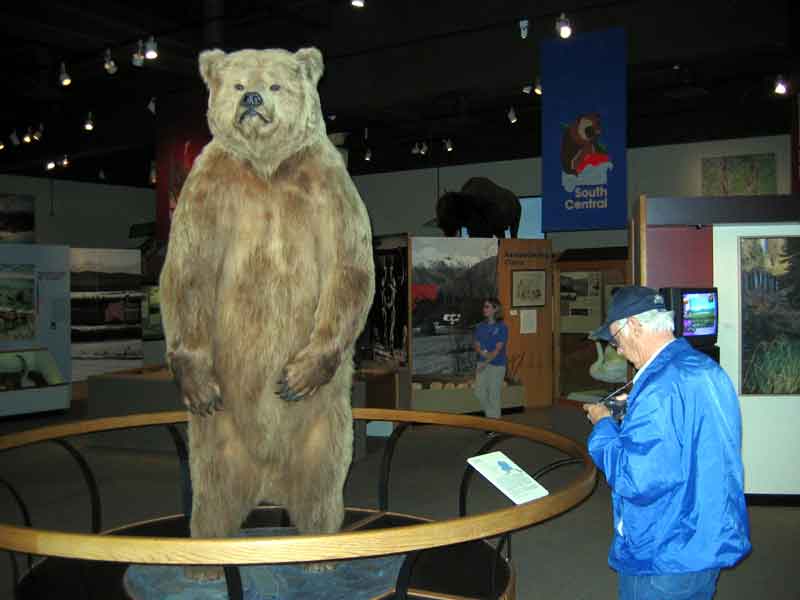
UAF
The University of Alaska at Fairbanks is a great place to spend some time. There
are tours of the Geophysical Institute facilities that cover research into weather,
earthquakes and the aurora, that are quite interesting.
The museum is a must. It covers both the natural and political history of Alaska.
That brown bear that you see as you enter is 8'9" tall and weighs 1250 pounds.
Besides the excellent exhibits, they have several talks that are worth the time. We attended
the ones on aurora and on native cultures. After the cultures lecture the two
young people that gave it demonstrated some of the games played by the young natives.
These games are not only fun and competitive, but are designed to teach the
children and to build the skills and physical strength needed for survival in
their way of life.
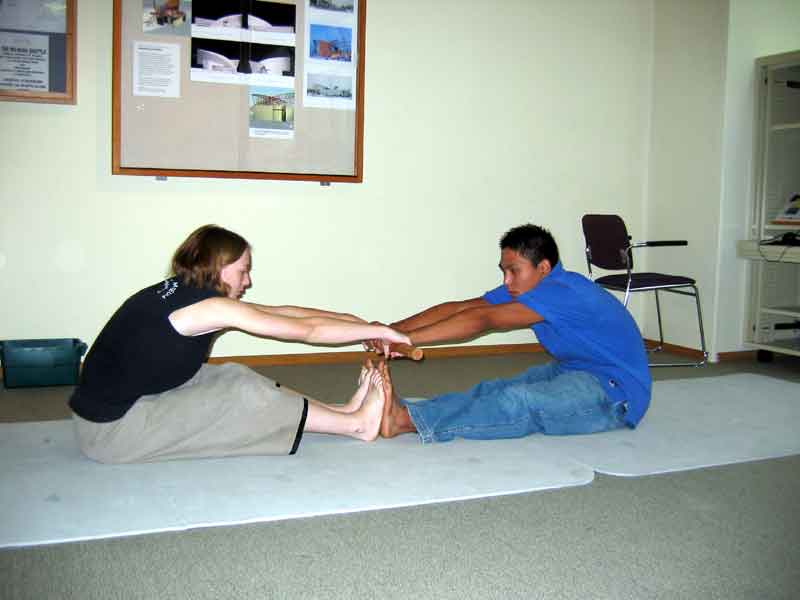
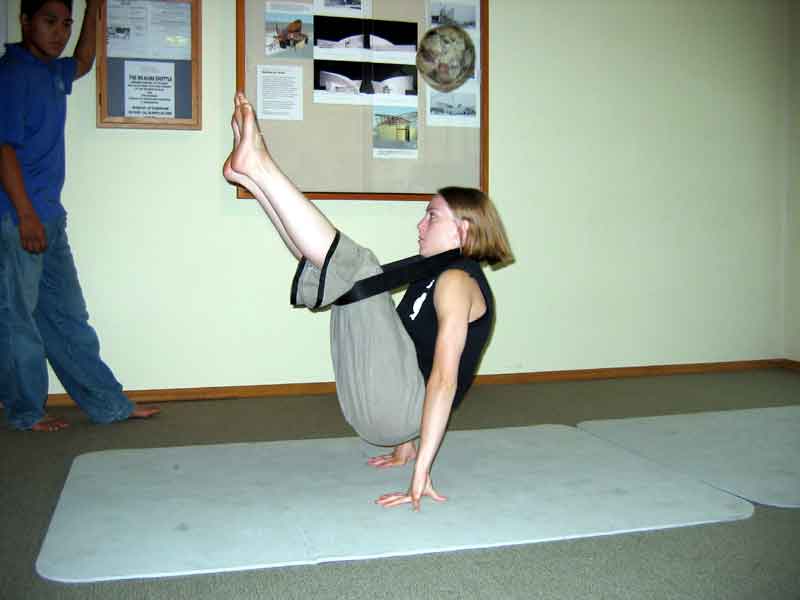
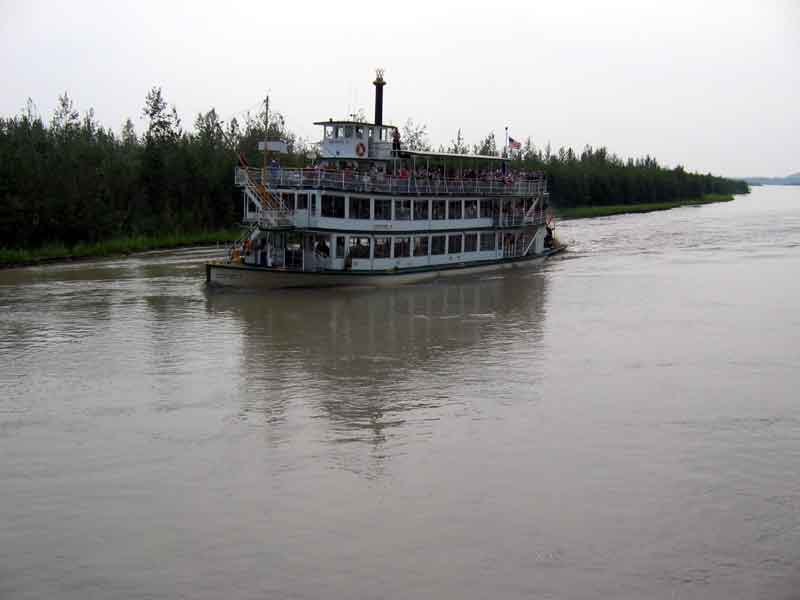
RIVERBOAT DISCOVERY
The riverboat Discovery takes passengers on a ride down the Chena River to where
it meets the Tenana River. During the tour you hear about the history of Fairbanks
and the surrounding area. You will see raindeer which are domesticated caribou,
and also see a dog mushing kennel and visit a Chena Indian village. It was well
worth the time to take this trip.
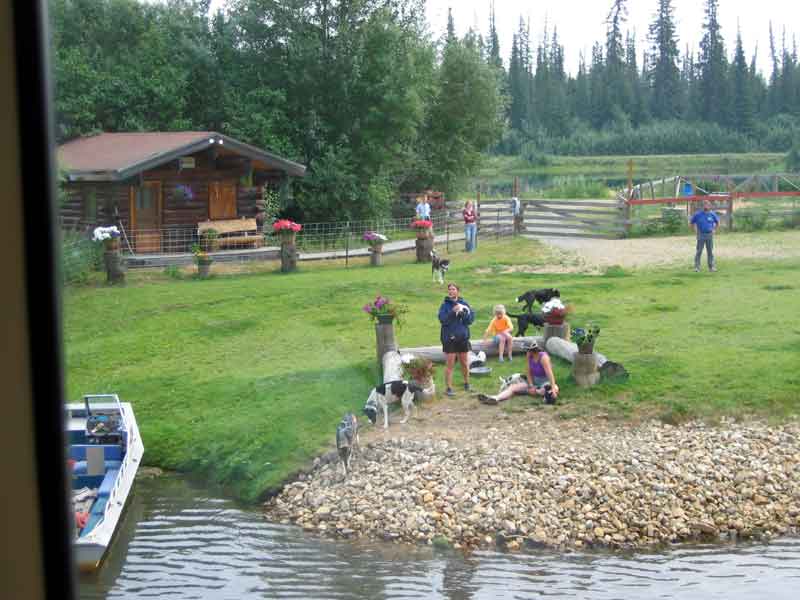
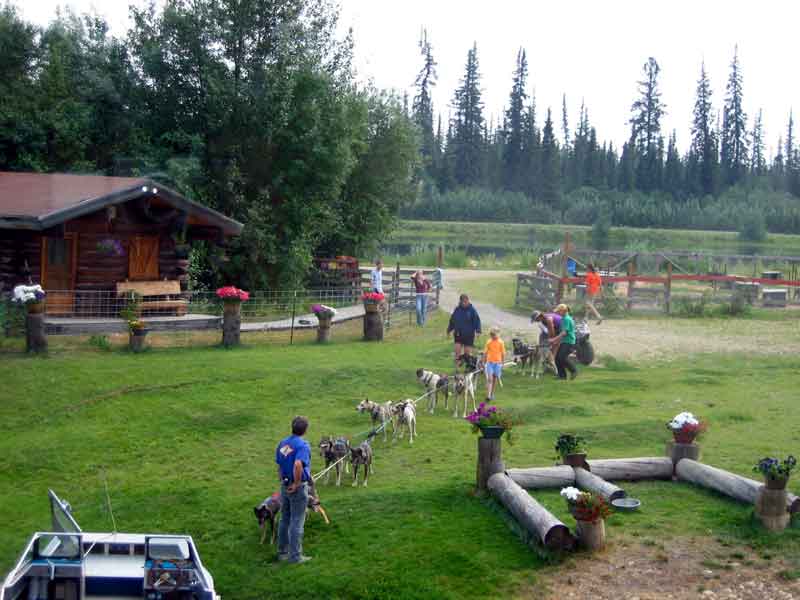
Susan Butcher and her kennels. She was the first woman to win the 1100 mile Iditarod Dog Sled Race
from Anchorage to Nome. She did it four times.
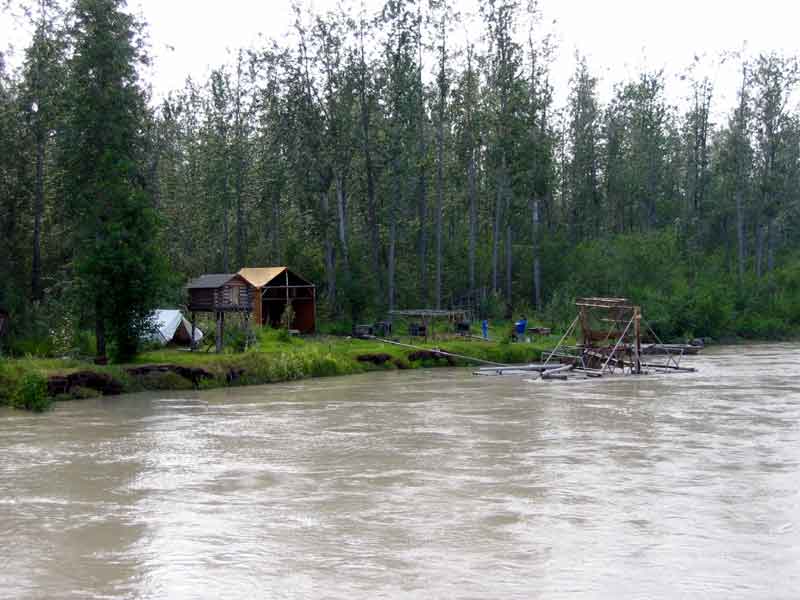
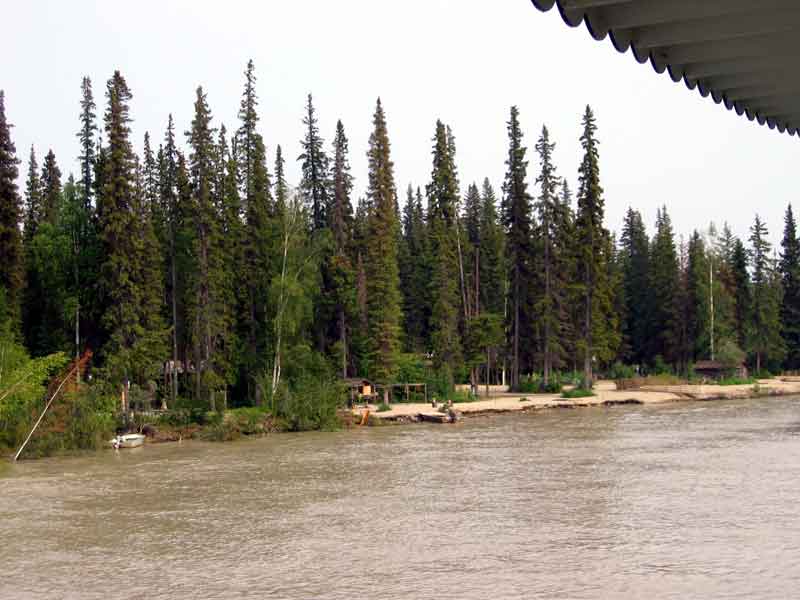
Left: This is a typical native fish camp with its fish wheel, which catches salmon.
Right: A Chena Indian village.
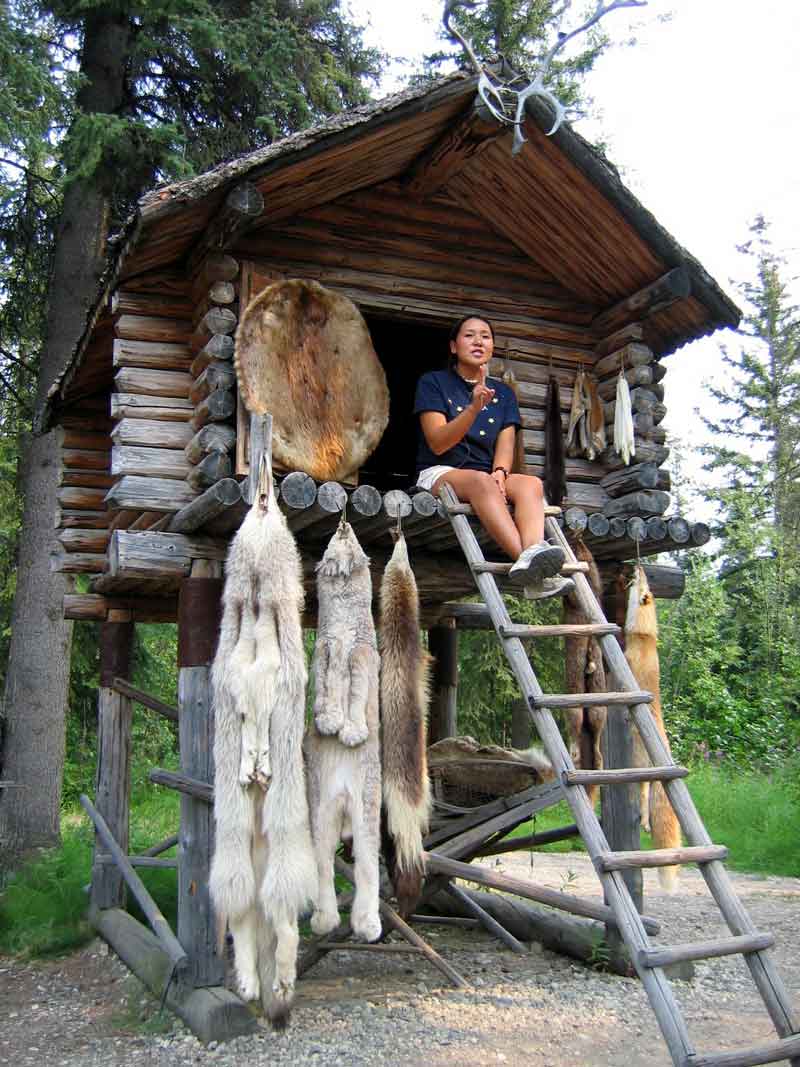
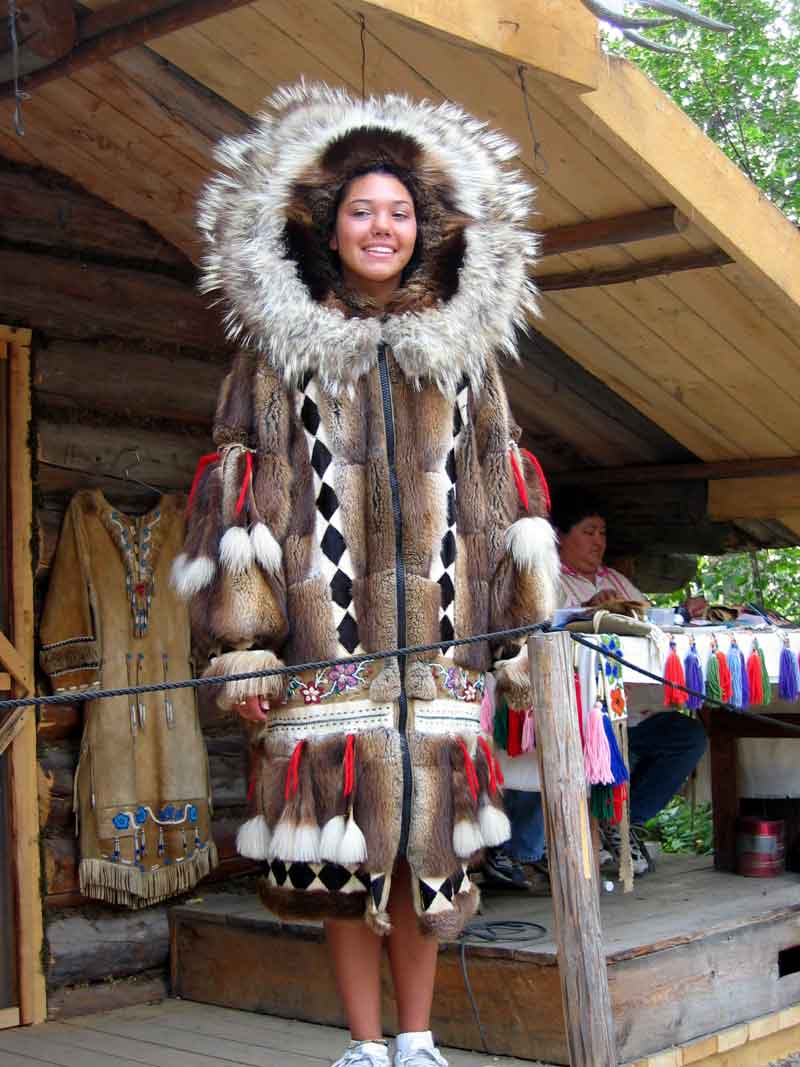
Left: Our guide showing some pelts hanging from a cache. Wolf, lynx, wolverine,
and two fox, from left to right.
Right: This is a fur coat made from this type of pelts. It is worth more than $15K.
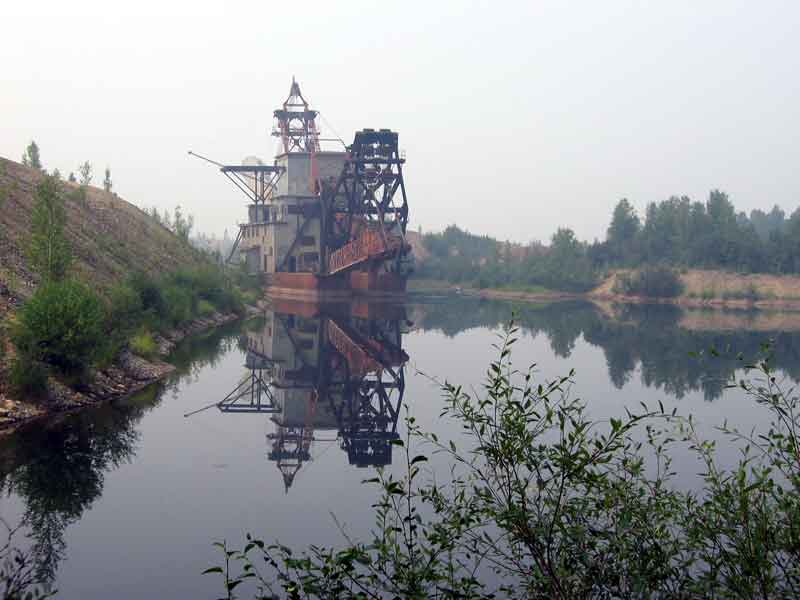
CHATANIKA
Chatanika Lodge is about 28 miles up the Steese Hwy, northeast of Fairbanks. The
lodge is very interesting in its own right but there is also another attraction
just across the road from it. An old gold mining dredge is sitting abandoned in
a pond. It is possible to walk a short distance and see this old hulk. You can
even climb a not so stout ladder and prowl around inside it. They have a video
at the lodge called Alaska Gold that tells the story of the gold mining in this
area and shows the dredge in the days it was working.
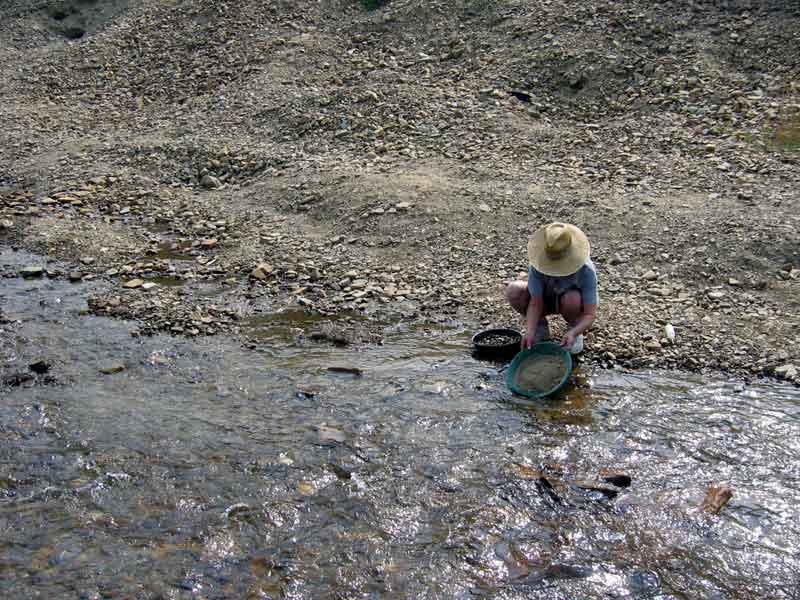
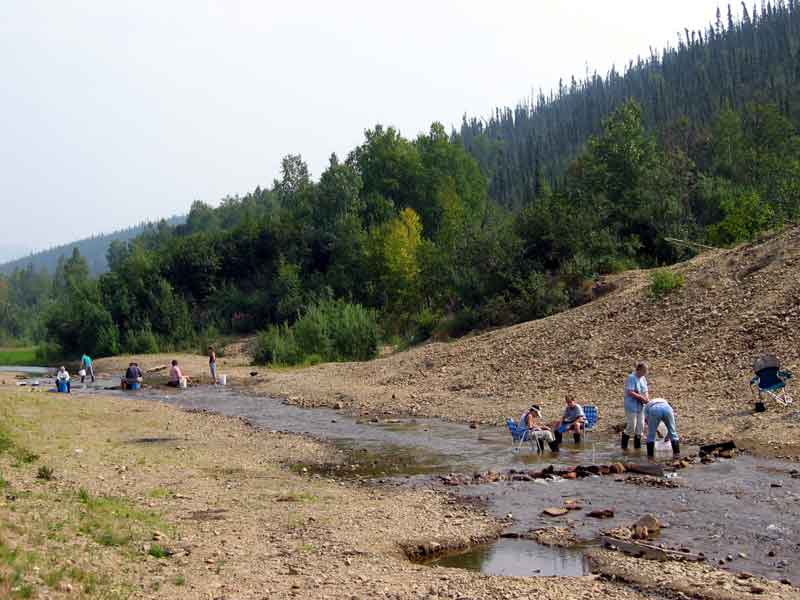
PANNING FOR GOLD
Here is Bobbi and a few other folks, panning for gold in a creek near Chatanika.
There are tailings all along the side of the creek left there after a dredge
processed it. These tailings have been added to by the government and a gold
mining company that have dumped some unprocessed ore at this spot. This is to
provide a place for those so inclined to do a little gold panning with a good
chance of finding some gold.
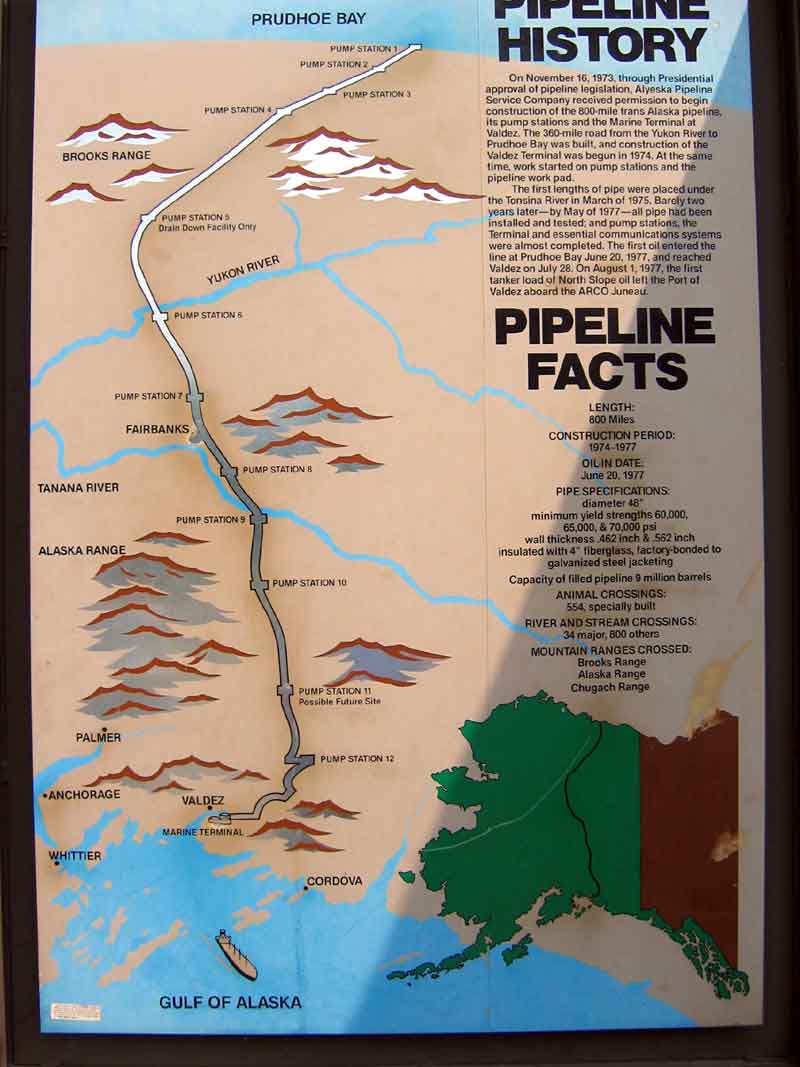
THE PIPELINE
There is a very informative pipeline viewing site just a few miles north of
Fairbanks on the Steese Hwy. It is a place where you can get close enough to touch it
and to get all kinds of information. They have a couple of "pigs" that were used on
the pipeline and lots of T-shirts, etc.
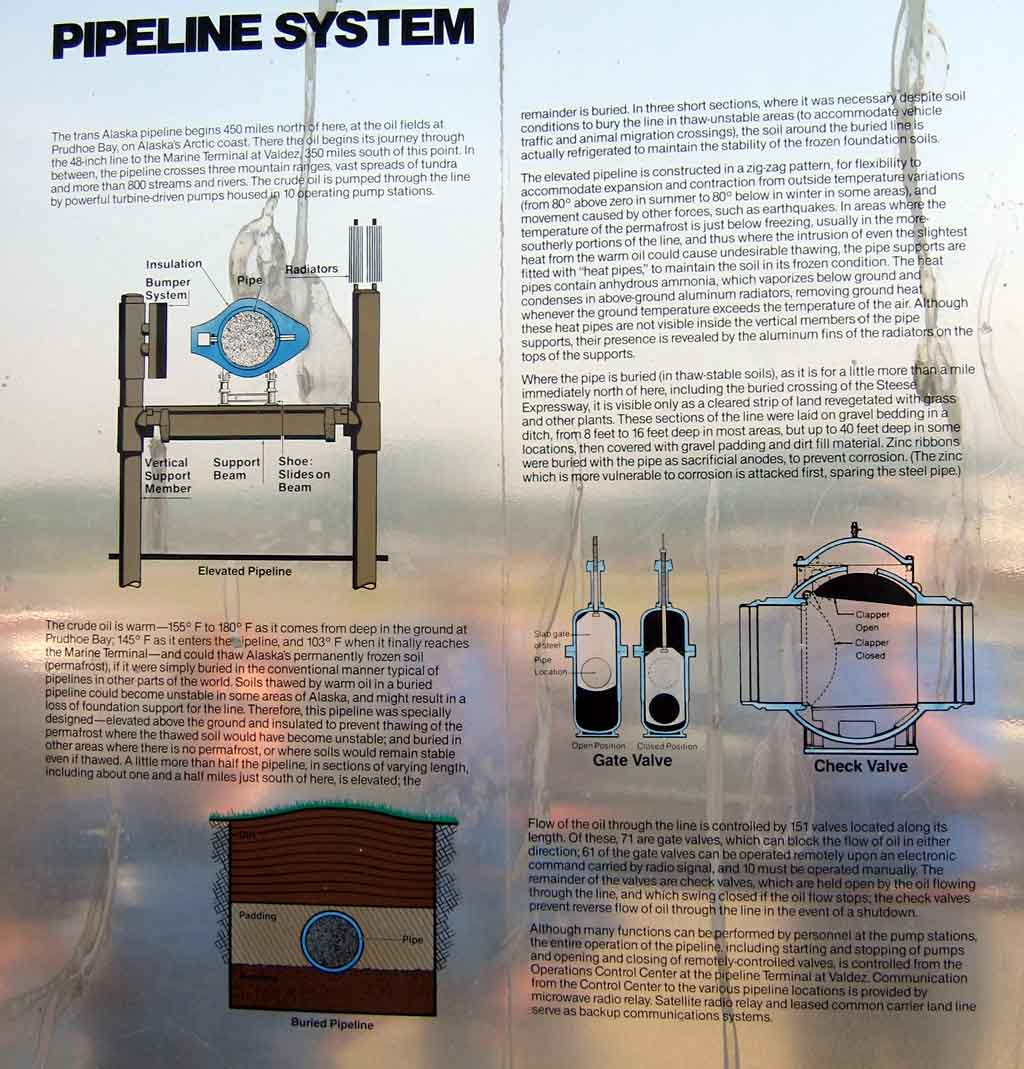
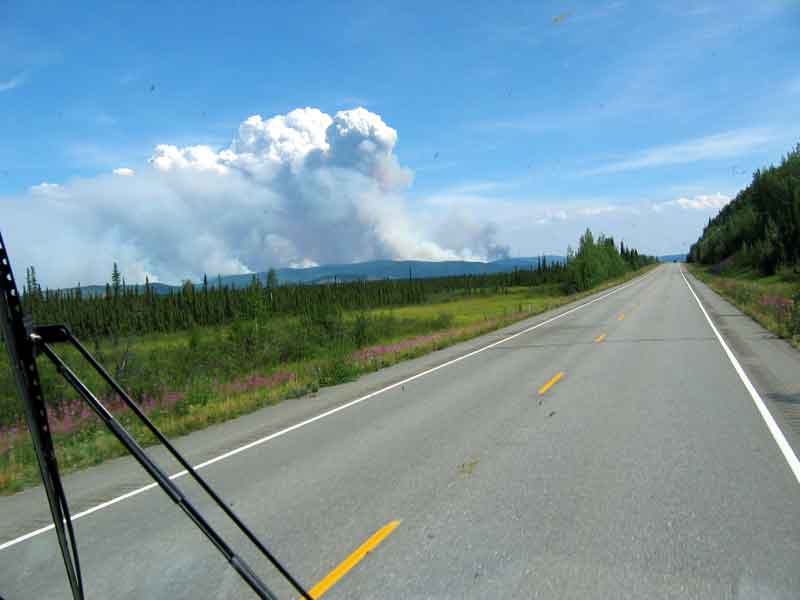
FOREST FIRES
We left Fairbanks while there were over 100 forest fires burning in Alaska. Lots
of smoke to obscure the view on the way to Tok. We were heading there to overnight
before taking the Taylor/Top of the World highways to Dawson City.
The picture is from about 40 miles west of Tok. In those last 40 miles we saw five
or six of these fires to the north and northeast.
We were going to Dawson so we could drive up to Inuvik but decided not to do that
since it would mean leaving the coach unprotected in Dawson which had several fires
burning around it.
















